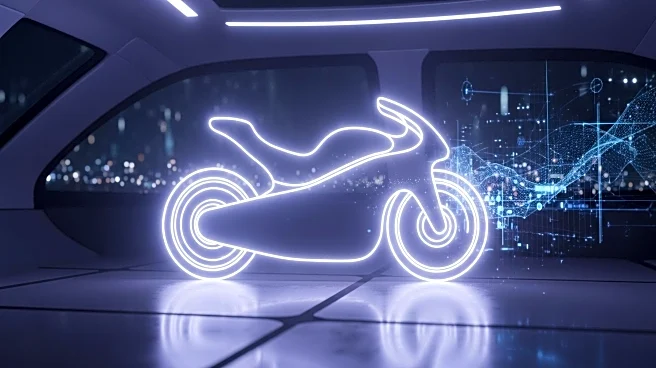What's Happening?
Tesla has partnered with Disney to promote the movie Tron: Ares through an in-car update, which has caused dissatisfaction among many Tesla owners. The update allows users to transform their in-car visualization into a Tron bike, effectively serving as an advertisement for the Disney film. This move is surprising given Tesla CEO Elon Musk's previous criticism of Disney, including the removal of Disney+ from Tesla Theater. The update has sparked negative reactions from owners who feel that Tesla should focus on more significant software updates, such as improving full self-driving capabilities, rather than promoting external content.
Why It's Important?
The decision to push advertisements inside Tesla vehicles marks a significant shift in the company's approach to in-car content, potentially setting a precedent for future advertising strategies within connected vehicles. This development raises concerns about the prioritization of entertainment over essential software updates, which could impact Tesla's reputation among its customer base. The partnership with Disney, despite Musk's previous criticisms, highlights the complexities of corporate collaborations and the potential influence of external media on automotive technology.
What's Next?
Tesla may face increased scrutiny from its customers and industry analysts regarding its advertising strategies and software update priorities. The company might need to address customer concerns and clarify its approach to in-car content to maintain consumer trust. Additionally, Tesla could explore offering an ad-free experience through premium connectivity subscriptions, as suggested by industry observers.
Beyond the Headlines
This development could signal a broader trend of automakers integrating advertising into vehicle software, raising ethical questions about consumer privacy and the commercialization of personal transportation spaces. The partnership with Disney might also reflect a strategic move to leverage popular media for brand visibility, despite potential backlash from consumers.









